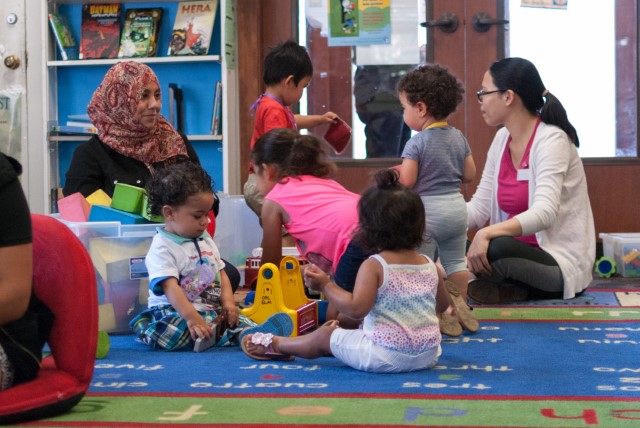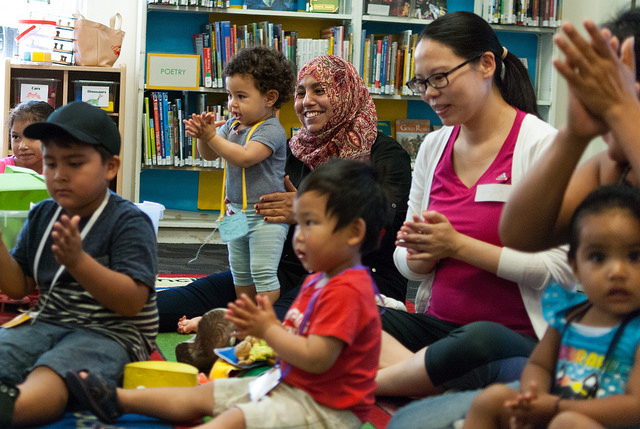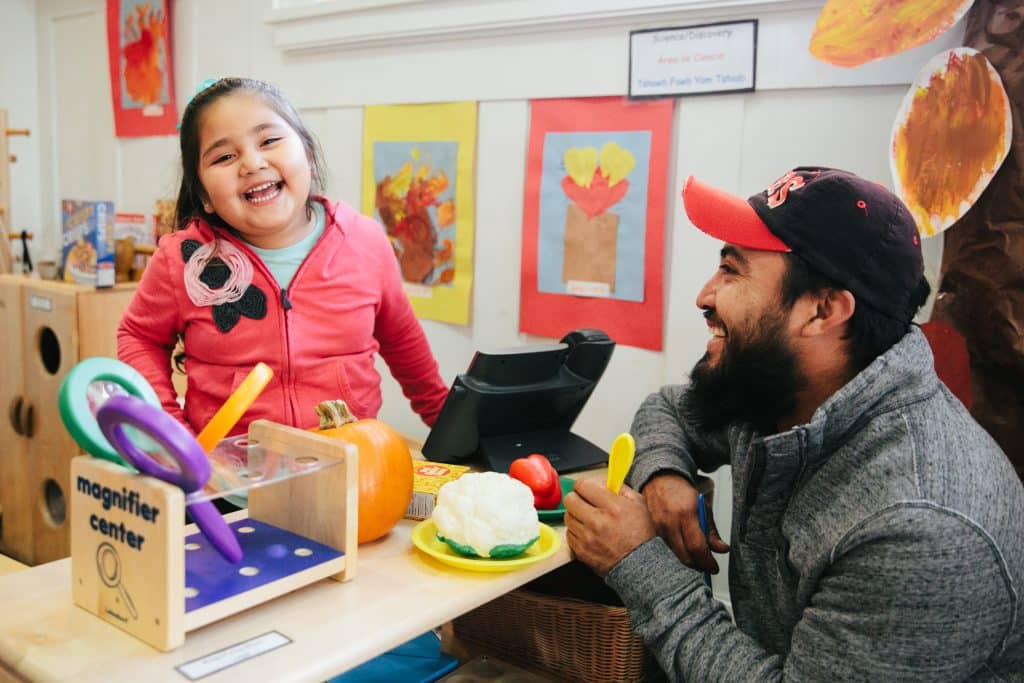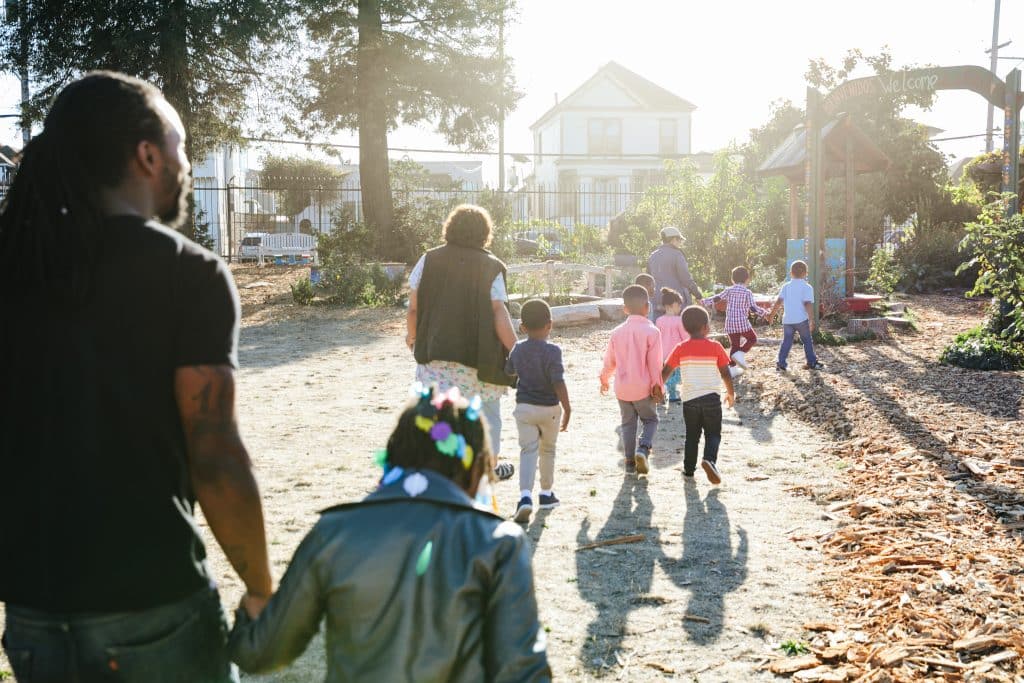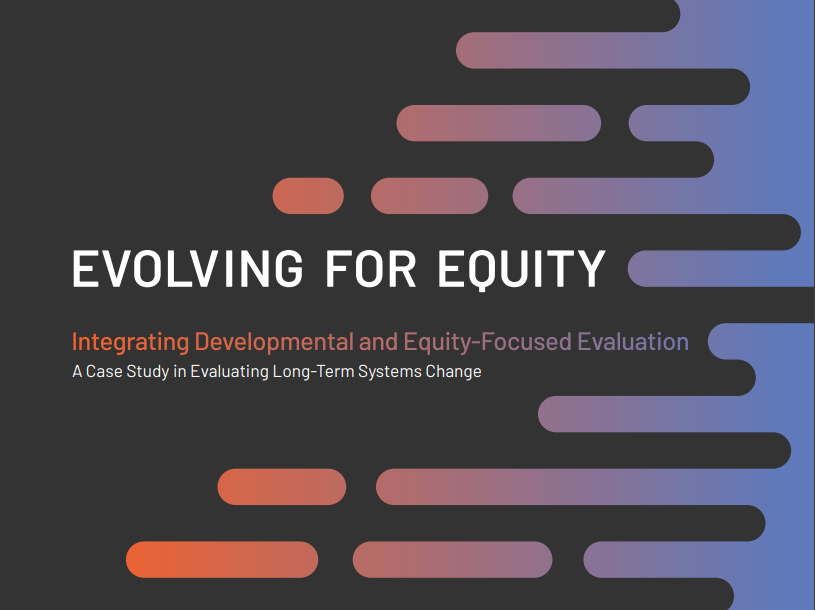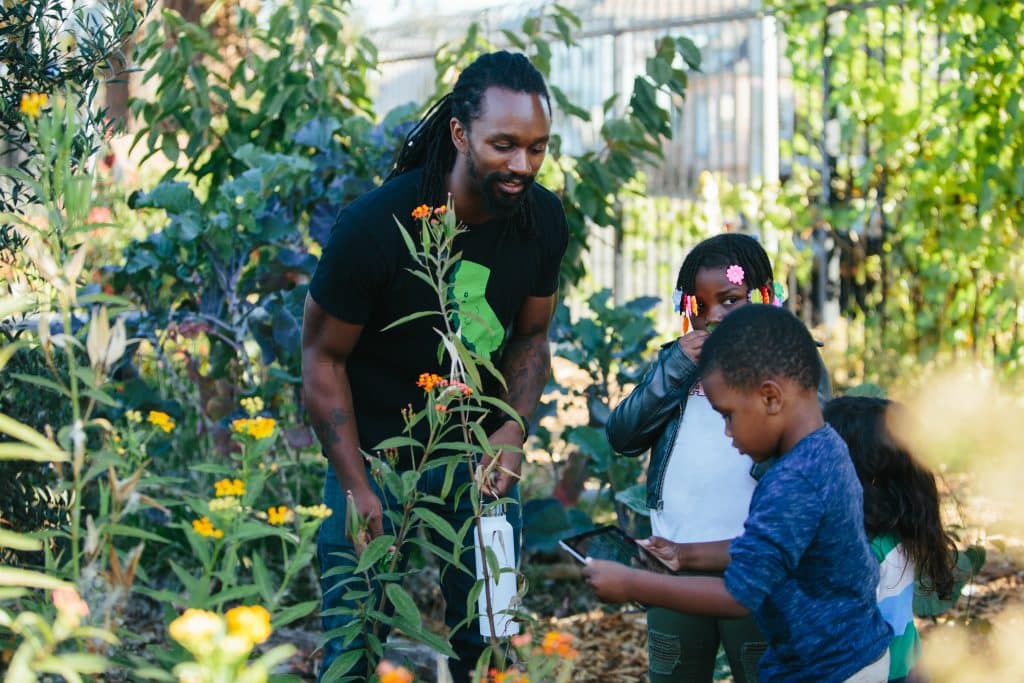The foundations for a lifetime of health and learning are built in the first five years of a child’s life, and adults are key to making these foundations strong. When adults know how to support a child’s healthy development and can create experiences for learning, children grow up with the curiosity and confidence they need to succeed in school and life. Informal caregivers—such as family, friends, and neighbors (FFN)—are an important part of nurturing a child’s development and, at the Foundation, we are focused on ensuring that these caregivers have the skills and support they need to create nurturing environments. The core hypothesis underlying our Informal Care strategy is that providing information to FFN caregivers, and connecting them to resources, to each other, and to formal caregivers can support them in creating stimulating and rich learning experiences for the children in their care.
But what does that look like in practice? During a visit to Go Kids, Inc. in Salinas, California we had the opportunity to see one of their FFN playgroups in action. The playgroup was facilitated by Ramona, a community member who had worked as a licensed family child care provider for over 18 years. Ramona modeled high-quality adult-child interactions by telling stories, building on children’s interests, and fostering nurturing relationships. She also introduced activities that caregivers could do at home with the children in their care and fostered leadership by inviting participants to lead activities for the whole group.
This is just one example of the innovative ways that our FFN grantees are approaching improving the quality of FFN care and creating nurturing early learning experiences. The Packard Foundation’s Children, Families, and Communities Program launched our Informal Care strategy in 2014, and since then we have been learning from our grantees who are testing approaches to improving the quality of care that FFN caregivers provide. As our Informal Care strategy has unfolded, we have conducted research and supported evaluations to learn from our grantees and share lessons learned with the field. After funding two rounds of pilots, we have learned a lot and are making slight adjustments for the road ahead. Here we reflect on where we’ve been and where we’re headed.
After funding our first cohort of grantees to test strategies that reach and engage FFN caregivers and practices that improve the quality of their interactions with children, we learned more about the challenges that result from not having a system in place to easily reach or support FFN caregivers. In response, we broadened the scope of our grantmaking to include organizations throughout California who are engaged in this work and created a learning community among our partners to share their challenges and successes with the broader field of FFN care.
Given that our Informal Care strategy was new and emergent, a core component has been funding evaluation at each stage of our grantmaking. Our evaluation partners provided evaluation technical assistance to our grantees and supported them in gathering data to measure the impact of their programs on FFN caregivers. In June 2017, we shared the evaluation report from the first cohort, which highlighted key lessons learned about strategies and practices to effectively connect with FFN caregivers, including: the importance of using evidence-based practices, working with a trusted source in the community, allocating sufficient resources to outreach, reducing isolation by establishing a sense of community, and helping FFNs recognize their value as caregivers.
From the second cohort of FFN grantees, we also identified three lessons learned which build on what we already knew about the incredible complexity of working with FFN caregivers:
- In order to effectively reach FFN caregivers, organizations must understand their target population and customize their outreach accordingly. One grantee specifically designed their curriculum for Spanish and Mixteco-speaking populations in Santa Barbara and Santa Maria and used promotores (community health workers) from the community who were also FFNs to conduct outreach.
- Trained mentors can be powerful partners in delivering programming. Many of our grantees trained mentors or facilitators who were FFNs themselves or licensed caregivers. These mentors also shared the cultural background or community of the FFNs they were working with. Their caregiving experience and community connection contributed to their ability to establish valuable relationships with FFNs to support their learning and encourage participation.
- Ongoing participation in programs results in increased confidence and knowledge among FFN caregivers. Our grantees provided opportunities for FFNs to engage in a series of workshops, support groups, or home visits rather than a one-time event. FFNs who participated consistently in their programming reported increased confidence in their caregiving skills, along with increased knowledge and a greater ability to advocate for their needs with parents.
A summary of the evaluation can be found here.
What’s Coming Next
With lessons learned from two grantee cohorts, our work now focuses on scaling successful strategies within existing community pathways that reach FFN caregivers, such as public libraries, child care resource and referral agencies, and networks of promotores and community health workers. In addition, we will engage in three efforts to further strengthen what we already know about supporting FFN caregivers: (1) invest in research on the quality of care in FFN settings; (2) continue to engage learning communities of organizations supporting FFN caregivers to share resources and best practices; and (3) better understand how to effectively communicate with FFN caregivers in order to support organizations in developing more targeted messages to reach them.


